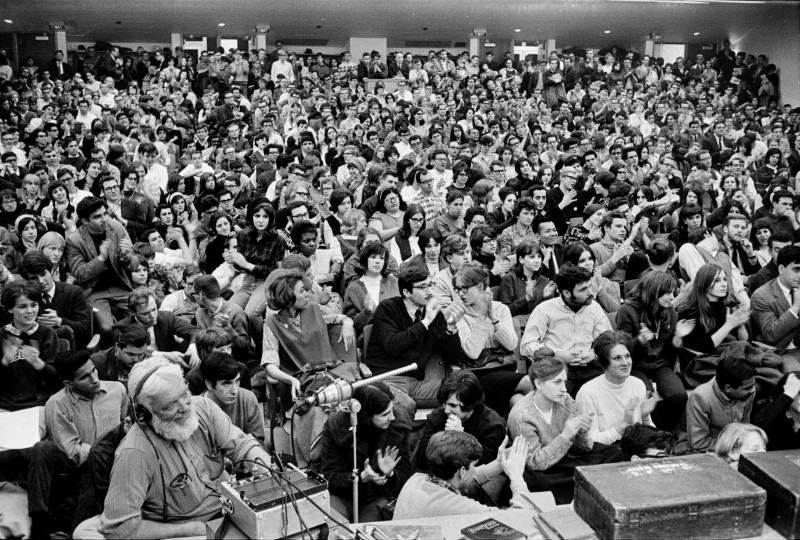The (London) Guardian reported two weeks ago on a group of students that are cooking up a storm, or a “quiet revolution,” in Manchester. Their online petition charges that “Academic integrity requires that alternative economic theories be introduced to students” and the “recognition of the fact that economics is a discipline that consists of a variety of schools of thought.” The Guardian thinks highly of them. Aditya Chakrabortty in an opinion piece headed by a stern stone faced Marx, revived the story later in the week. In the original (online) article the group is pictured as if posing for the latest installment of the Avengers. Action heroes for economics! Badass!
The full disclosure of the internet grants me the privilege of prying on their business, and I learn that they have been reading on institutional economics, econophysics and have their own self-run course on finance. Their reading list is a minimal and tasty menu, as menus should be. Although I am depressed by their antediluvian choices in the history of economics. Manchester is only the latest of the groups networked through Rethinking Economics. Outposts in Tubingen, London School of Economics, University College London, Cambridge and New York are running their own reading groups and events. Their first joint meeting was sponsored by LSE Economics and INET, and had the support of People & Planet, New Economics Foundation, Econowhat?, The Jubilee Debt Campaign.
We have a social movement, with the standard features of media visibility and legitimation, demands, petitions… Monday, the student coalition was audience to discussions at the Treasury about reforms of economics education. As far as I understand the initiative originated from Wendy Carlin from UCL and INET. The students find encouraging support from all quarters. So when will economics change?

To answer the question I am drawn to the record of the latest wave of scientific dissent, from the 1960s to the 1980s, and to a measure or two of self-criticism. As a veteran student discontent with “quiet revolutionary” credentials, I am aware of my cohort’s failure to transform our university. A few years after our departure, the fading traces of our campaigns were property of a fringe that refused to graduate. The failure of my cohort was that we did not ally with the faculty.
A faculty social movement without students will fail. In America in the 1970s once the draft was removed, and with it threats on the lives of youths (other things happened too), the student rebellion quieted. The faculty radicals’ grip on university hires and curricula loosened. A student movement without faculty, as peers and fellow travellers, will also fail. The cruelty of the graduate program and its “boot camp” socialization is all powerful. To compete in the job market they will have to behave and the values and aspirations of the summer of 2013 can be maintained only as effete idiosyncracy. To earn tenure they will be toiling at working papers and AER submissions, occasionally day dreaming of giving their name to a book of thunder that sends it all to hell.
The latest thinking of the British conservative government is to foster a consumer culture in the Universities. Students and families pay higher fees, the state disinvests from monitoring the teaching, and the paying customer gets a bespoke education fitting her values and career imaginations. Economists know how product differentiation and market segmentation works. Rethinking economics might then be framed as a consumer movement, whose demands can be met by changing a few programs to meet a niche clientele.
How can one make sure that the movement isn’t framed? How does one preserve its civic virtue and momentum? Looking at the record of the 1960s and 1970s, the answer is: to be political. It was the Atomic bomb, and it was environmental threats, and it was male chauvinism, and it was racism, and it was Vietnam, in different ocassions for different groups, of engineers, physicists, and economists. All the social movements of intellectuals that created new ideas, the economists originating what we today call “heterodox” economics, called for change beyond the universities, a transformation of the polity. What is it that we want economics to achieve? I see plenty to be passionately angry about: climate change, inequality, job precarity, the elimination of commons, surveillance, anxiety and war, and how they all come together in one coherent all singing all dancing economic system.



